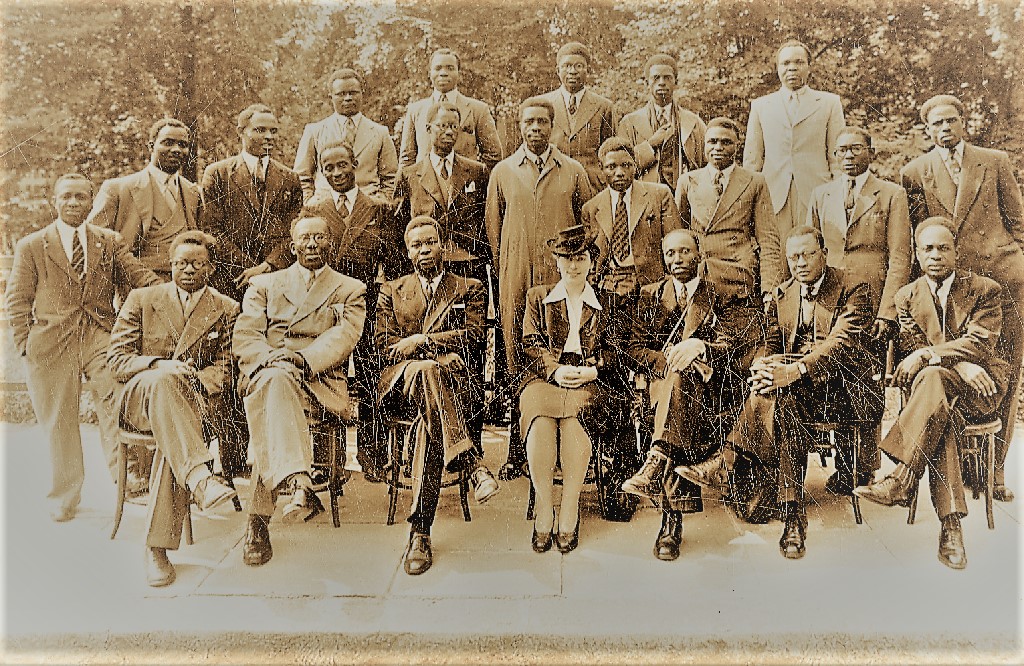
The Atlantic Charter & Pan African Congress
During World War 2, the allied forces benefited from mineral resources from Africa. The uranium used in the atom bombs dropped in Japan for example came from the then Belgian Congo (Democratic Republic of Congo). In 1941, British Prime Minister Winston Churchill met with then American President, Franklin Roosevelt and agreed on the Atlantic Charter. Part of the agreement included a commitment by Britain to allow the colonies to self-govern. However, Churchill told the House of Commons that the right to govern did not cover African states. Thereafter, the US State Department issued another document in which they reiterated the need to draft a plan which would enable African states to become independent.
 THE ATLANTIC CHARTER- AUGUST 14, 1941
THE ATLANTIC CHARTER- AUGUST 14, 1941
The President of the United States of America and the Prime Minister, Mr. Churchill, representing His Majesty’s Government in the United Kingdom, being met together, deem it right to make known certain common principles in the national policies of their respective countries on which they base their hopes for a better future for the world.
First, their countries seek no aggrandizement, territorial or other;
Second, they desire to see no territorial changes that do not accord with the freely expressed wishes of the peoples concerned;
Third, they respect the right of all peoples to choose the form of government under which they will live; and they wish to see sovereign rights and self-government restored to those who have been forcibly deprived of them;
Fourth, they will endeavor, with due respect for their existing obligations, to further the enjoyment by all States, great or small, victor or vanquished, of access, on equal terms, to the trade and to the raw materials of the world which are needed for their economic prosperity;
Fifth, they desire to bring about the fullest collaboration between all nations in the economic field with the object of securing, for all, improved labor standards, economic advancement and social security;
Sixth, after the final destruction of the Nazi tyranny, they hope to see established a peace which will afford to all nations the means of dwelling in safety within their own boundaries, and which will afford assurance that all the men in all lands may live out their lives in freedom from fear and want;
Seventh, such a peace should enable all men to traverse the high seas and oceans without hindrance;
Eighth, they believe that all of the nations of the world, for realistic as well as spiritual reasons must come to the abandonment of the use of force. Since no future peace can be maintained if land, sea or air armaments continue to be employed by nations which threaten, or may threaten, aggression outside of their frontiers, they believe, pending the establishment of a wider and permanent system of general security, that the disarmament of such nations is essential. They will likewise aid and encourage all other practicable measure which will lighten for peace-loving peoples the crushing burden of armaments.
Franklin D. Roosevelt
Winston S. Churchill
THE PAN AFRICAN CONGRESS (1945)
In response to the Atlantic Charter, the French Africa conference was held in Brazzaville in 1944. The French rejected any idea of autonomy or self-government for the colonies. The compromise was that representatives of the colonies would be elected to the French Legislative Assembly.
The British passed the Colonial Development and Welfare Act in 1940 but would not make a commitment or set a timetable for African independence. The British believed Africans would require another 80 years of colonial rule before they could self-govern.
Africans, however, yearned for self-governance sooner than the British and French anticipated. In October 1945, African activists convened a Pan African Congress in Manchester, England. The gathering included lawyers, teachers, writers and so forth from all parts of Africa including Jomo Kenyatta, Kwame Nkrumah, W.E.B DuBois, Hastings Banda, Dudley Thompson, Obafemi Owolowo, Amy Ahswood Garvey and Jaja Wachuku.
Although Britain renounced sovereign authority over South Africa, the power to govern was transferred to white South Africans who would go on to create one of the worst systems of oppression on the continent.




1 Comment
by KiTem
Why is Britain, USA , France always common mention in fracas across the continent. Very uncivilized bunch of savages.
Comments are closed.